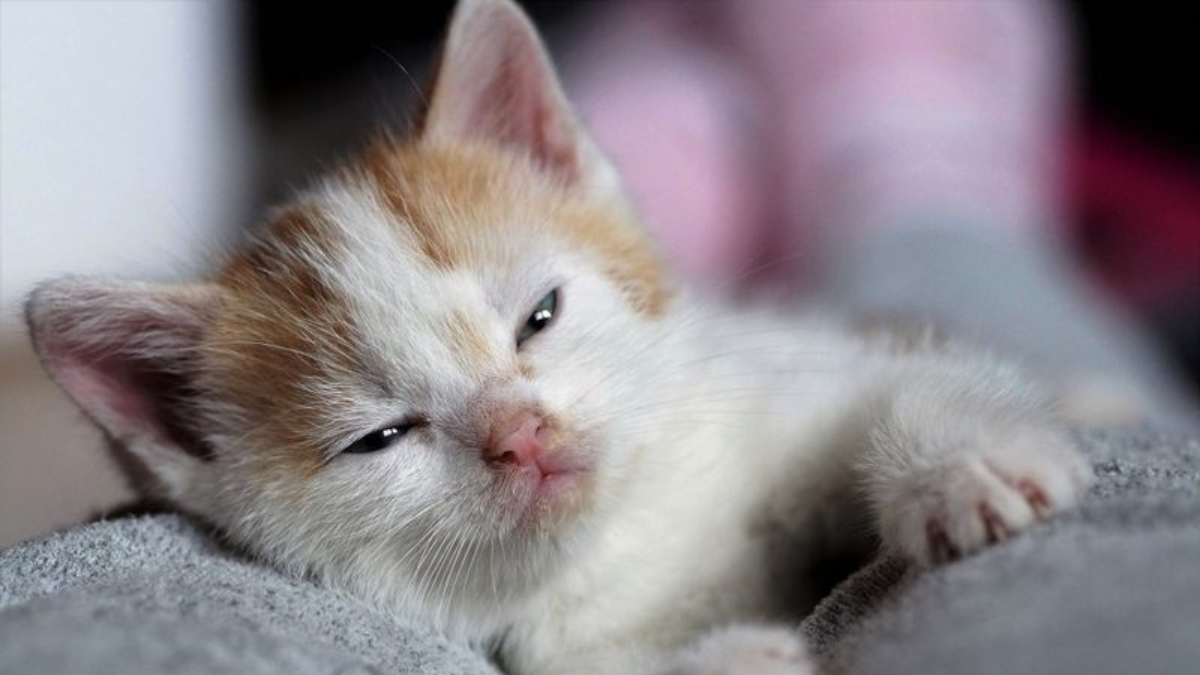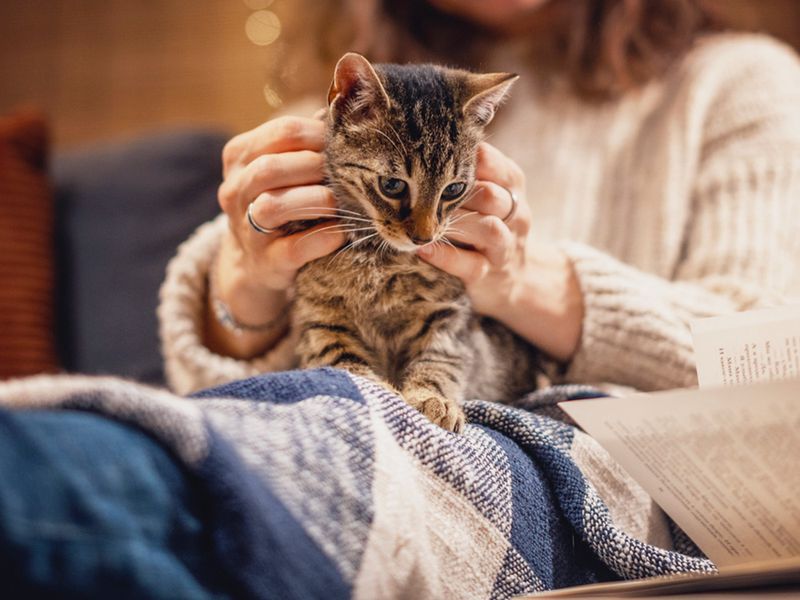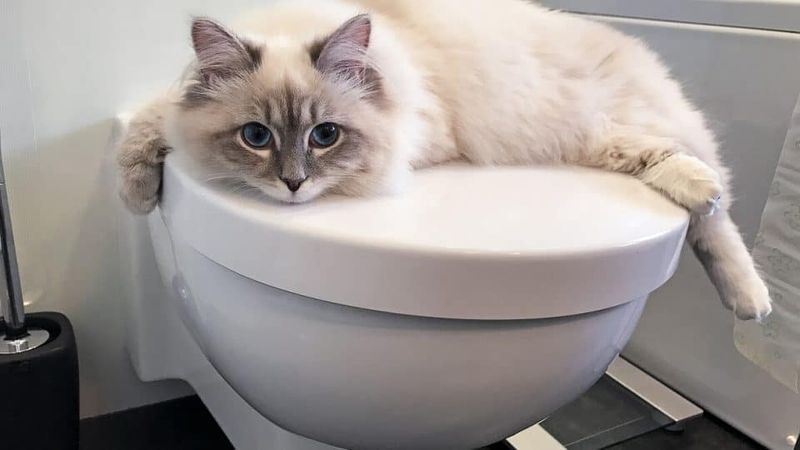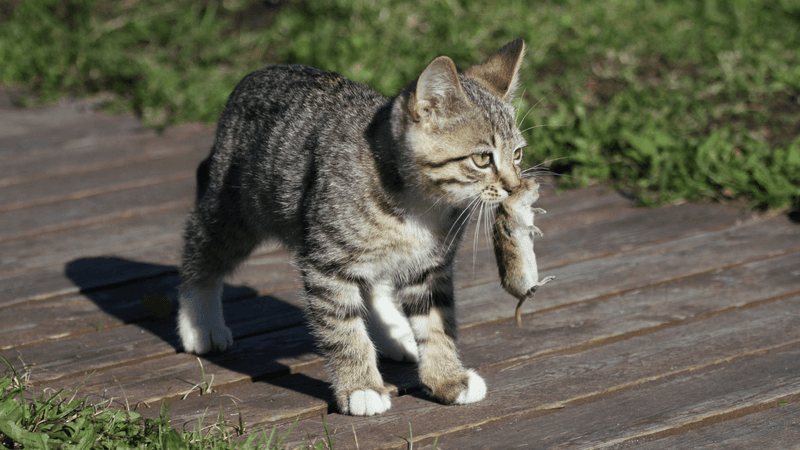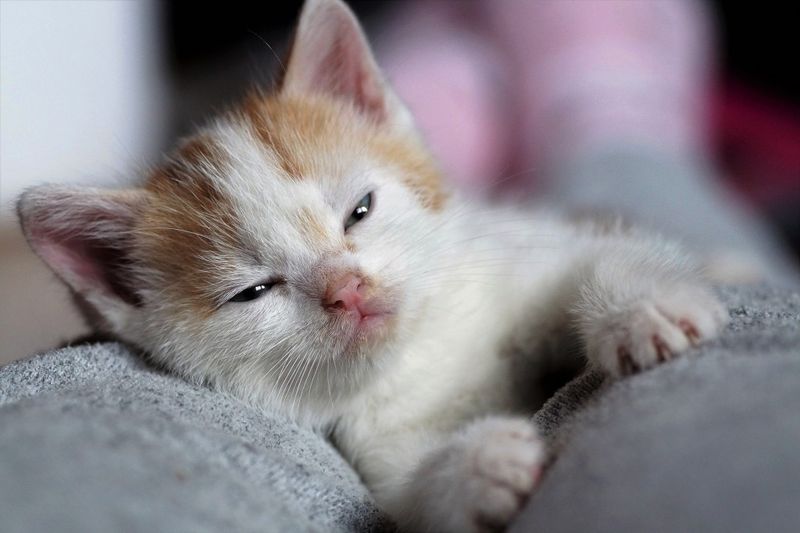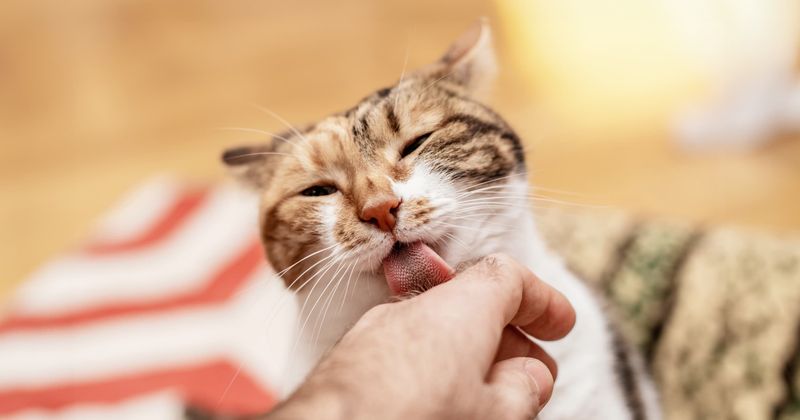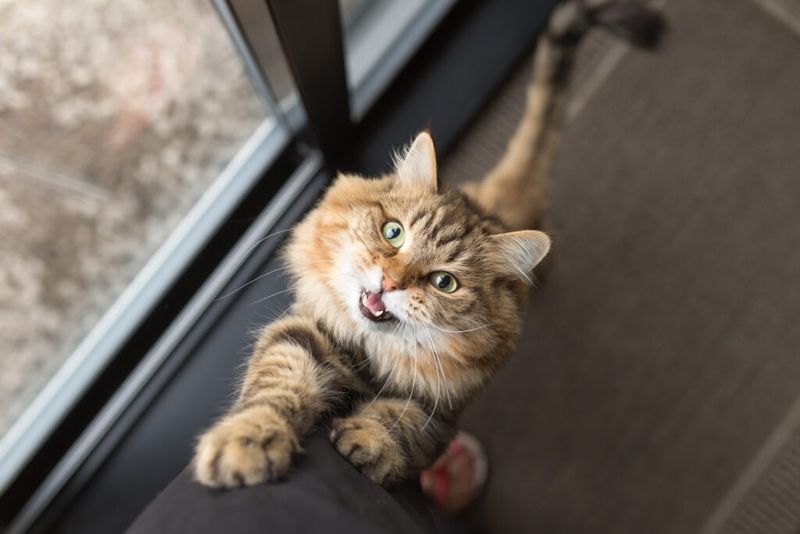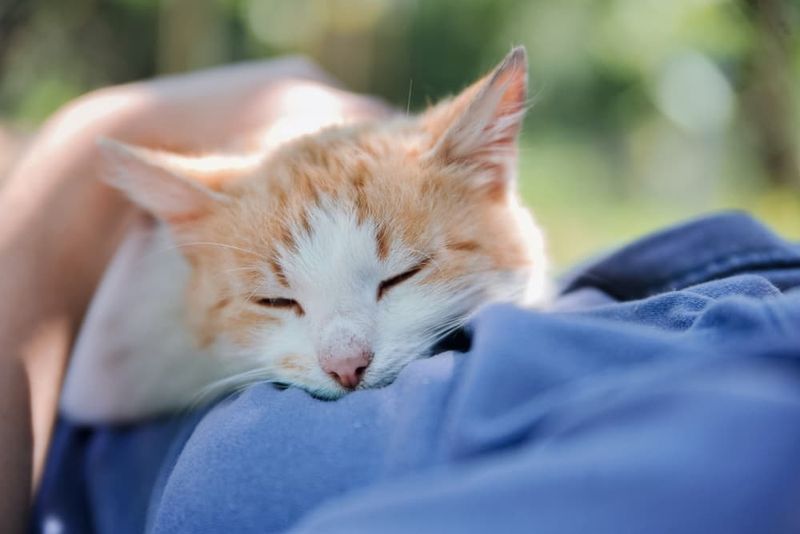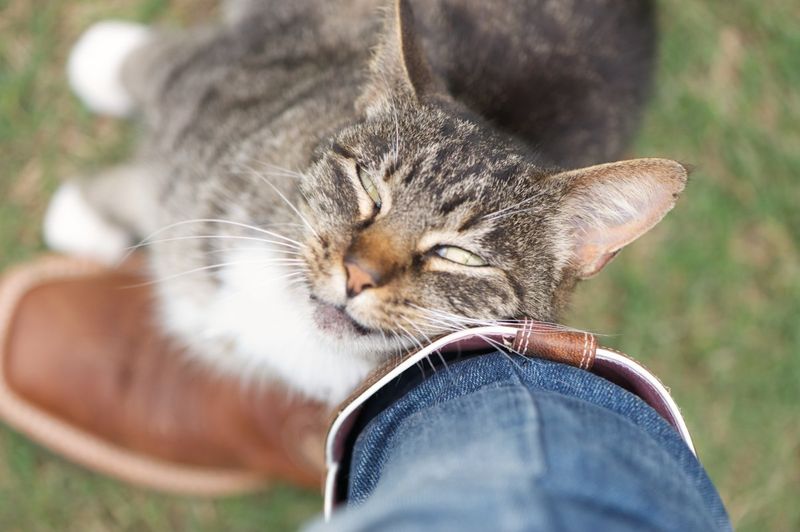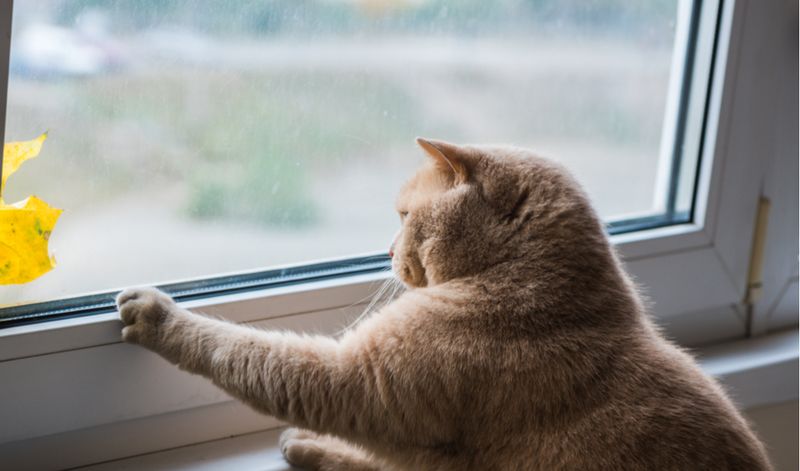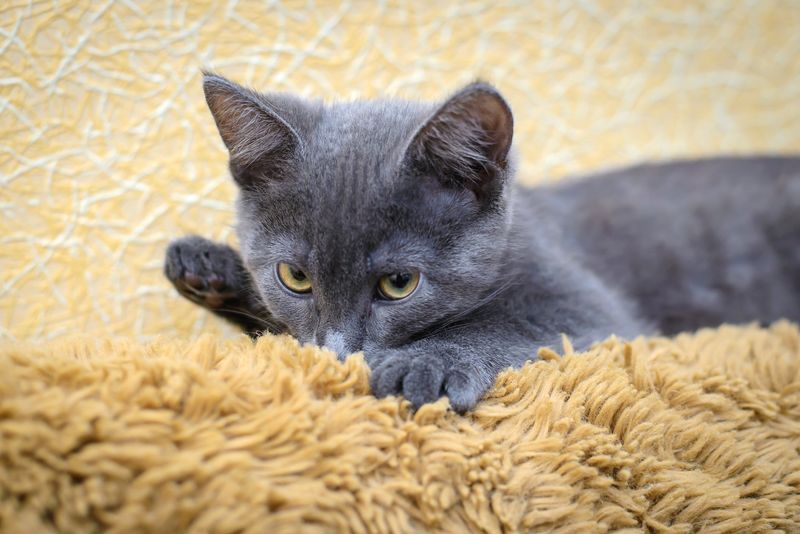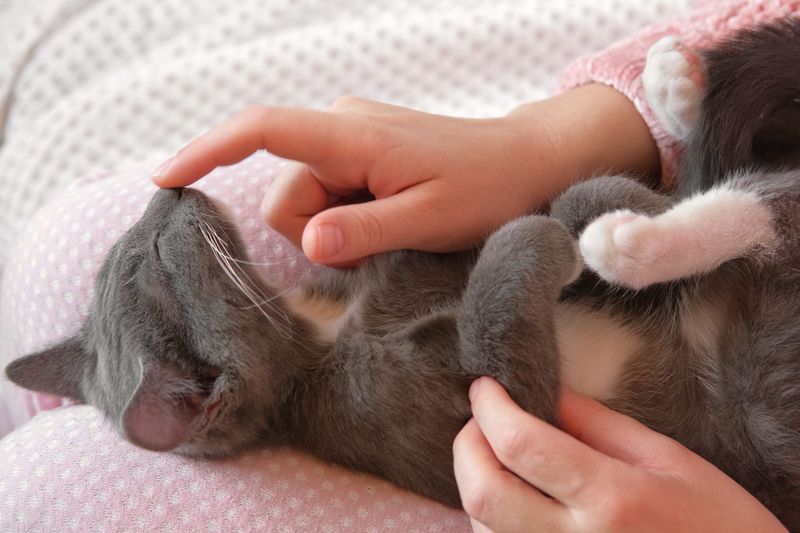📖 Table of Content:
- 1. Kneading Your Lap Like Dough
- 2. Following You to the Bathroom Every Single Time
- 3. Bringing You “Gifts” (Dead or Alive)
- 4. Slow Blinking at You Across the Room
- 5. Grooming Your Hair or Skin
- 6. Meowing Specifically for Your Attention
- 7. Sleeping on Your Chest or Near Your Face
- 8. Head-Butting and Cheek Rubbing Against You
- 9. Panicking When You Leave the House
- 10. Making Biscuits on Your Blanket While Sucking on It
- 11. Presenting Her Belly to You (But Not for Rubs)
Cats are often seen as solitary and self-reliant animals, yet many develop profound emotional attachments to their humans. In some cases, this bond takes on a distinctly maternal dynamic, where the cat behaves as if its person is a surrogate parent. This isn’t just wishful thinking—feline behavior often mirrors the way kittens interact with their mothers.
Certain gestures, such as kneading, following from room to room, or vocalizing in specific tones, echo early-life behaviors rooted in comfort and dependency. These actions are more than habits; they reflect trust, affection, and a desire for closeness. Over time, these patterns reveal the depth of the bond between cat and caregiver.
Understanding these signals helps explain why some cats seem especially devoted to one person in the household. When a cat adopts someone as their mother figure, their loyalty becomes both tender and persistent. It’s a quiet, comforting form of love that shows itself in small, meaningful ways.
1. Kneading Your Lap Like Dough
Those rhythmic paw pushes against your lap aren’t just random movements. Kneading (or “making biscuits” as many cat lovers call it) is behavior kittens use on their mother’s belly to stimulate milk flow during nursing.
When your adult cat does this to you, she’s reverting to her kittenhood comfort behavior. The happier and more secure she feels with you, the more enthusiastically she’ll knead.
Many cats even drift into a trance-like state during this activity, often accompanied by heavy purring and half-closed eyes – clear signs that she associates you with the same safety and comfort her cat mom once provided.
2. Following You to the Bathroom Every Single Time
Your cat’s bathroom bodyguard routine isn’t just about curiosity. This behavior stems from her instinct to stay protected by sticking close to her mother figure – that’s you!
Cats are actually at their most vulnerable during bathroom activities in the wild, so by accompanying you, she’s both seeking protection and offering it. The enclosed space also provides a perfect opportunity for undivided attention.
The fact that she patiently waits by the door or perches on the counter watching your every move shows she considers you her safe haven and doesn’t want to let you out of her sight – classic kitten-to-mother behavior.
3. Bringing You “Gifts” (Dead or Alive)
Finding a dead mouse at your doorstep might seem gross, but it’s actually your cat’s way of caring for you. Mother cats teach their kittens to hunt by bringing them prey, and your cat is returning the favor by trying to feed or teach you.
This gift-giving shows she sees you as family who needs looking after. Some experts believe cats might even think we’re just big, clumsy cats who can’t hunt properly.
The proud meow and strut that accompanies the delivery of these presents further confirms it’s an act of love and nurturing – she’s taking care of her human kitten just like her mother once cared for her.
4. Slow Blinking at You Across the Room
Cat slow blinks aren’t just adorable – they’re powerful communication. Known as “kitty kisses,” these deliberate, drowsy-looking blinks signal deep trust and affection in cat language.
Mother cats often exchange slow blinks with their kittens as a way of expressing love and security. When your feline friend catches your eye from across the room and gives you those slow, heavy blinks, she’s essentially saying, “I feel safe with you and trust you completely.”
Try returning these slow blinks next time. You’ll likely notice your cat responding with even more blinks or perhaps approaching for additional affection – strengthening your mother-child bond.
5. Grooming Your Hair or Skin
Those sandpapery licks on your hand or face might seem random, but they’re deeply meaningful. Mutual grooming is a bonding behavior cats reserve only for their closest family members.
Mother cats spend hours grooming their kittens to clean them, strengthen bonds, and distribute familiar scents throughout the colony. When your cat licks your hair, arm, or even tries to “groom” your clothing, she’s treating you exactly as a mother cat would treat her kitten.
This behavior indicates she’s accepted you fully into her family circle and is actively maintaining her bond with you – she’s essentially returning the care she believes you provide her.
6. Meowing Specifically for Your Attention
Adult cats rarely meow at each other in the wild – this vocal behavior is mostly reserved for mother-kitten communication. The distinctive meows your cat uses with you are specially developed for human interaction.
Your feline has essentially created a unique language just for you, her substitute mother. Each type of meow – whether short, chirpy, or long and drawn out – serves a different purpose, from greeting to demanding food or play.
Research shows cats often develop specific meows that work best on their particular humans. If your cat has different vocalizations for different needs, it’s because she’s learned exactly how to “talk” to get maternal care from you.
7. Sleeping on Your Chest or Near Your Face
Your cat’s preference for sleeping directly on your chest or curled up by your face isn’t just about finding a warm spot. This intimate sleeping position mimics how kittens sleep with their mothers for security and warmth.
The rhythm of your heartbeat and breathing is remarkably comforting to cats, reminding them of being nestled against their mother’s body. The chest and face areas also carry your strongest scent, which further reinforces the maternal bond your cat feels with you.
This vulnerable sleeping position demonstrates complete trust – your cat feels safe enough to be at her most defenseless state with you watching over her, just as a mother cat would protect her sleeping kittens.
8. Head-Butting and Cheek Rubbing Against You
Those affectionate head bumps and cheek rubs are more than just cute gestures. When your cat bumps her head against you or rubs her cheeks on your legs, she’s actually marking you with her scent glands.
Mother cats frequently mark their kittens to create a unified family scent that helps identify who belongs to their protective circle. By marking you, your cat is literally claiming you as her family and creating a shared scent profile that says, “This human belongs to me.”
The behavior is especially meaningful because cats only head-butt and cheek-rub individuals they consider part of their inner circle – you’ve been officially adopted into her family!
9. Panicking When You Leave the House
That anxious meowing when you reach for your keys goes deeper than skipped playtime—it’s often a sign of feline separation anxiety rooted in early maternal bonds.
The meowing at the door, frantic pacing, or destructive behavior while you’re gone stems from genuine concern about being separated from her primary caregiver. Some cats even sit by windows or doors until their human returns, just as kittens wait for their mother to come back from hunting.
This dependency reflects the deep maternal bond your cat feels with you – in her mind, you’re the provider of all good things, from food and warmth to protection and companionship.
10. Making Biscuits on Your Blanket While Sucking on It
This curious combination of kneading and sucking on fabric is a direct throwback to nursing behavior. When cats knead while sucking on blankets, especially wool or similar textures, they’re engaging in comfort nursing that directly mimics kittenhood.
The behavior is most common in cats weaned too early, but many well-adjusted adult cats continue it simply because they associate you and your belongings with the same comfort their mother once provided. The rhythmic motion and oral fixation create a soothing, endorphin-releasing experience.
When your cat chooses your specific blanket or clothing for this deeply personal comfort ritual, she’s demonstrating that your scent represents maternal safety and nurturing to her.
11. Presenting Her Belly to You (But Not for Rubs)
A cat exposing her belly isn’t necessarily an invitation for tummy rubs – it’s actually a profound display of trust. The stomach is a cat’s most vulnerable area, containing vital organs with minimal protection.
In the wild, cats only expose their bellies in completely safe environments, primarily to their mothers and trusted colony members. When your cat flops over and shows you her tummy, she’s demonstrating the ultimate trust – “I know you’ll protect me, not hurt me.”
This vulnerable position is reminiscent of how kittens expose their bellies to their mothers during play and grooming, signaling complete faith in your role as their protector and caregiver.
